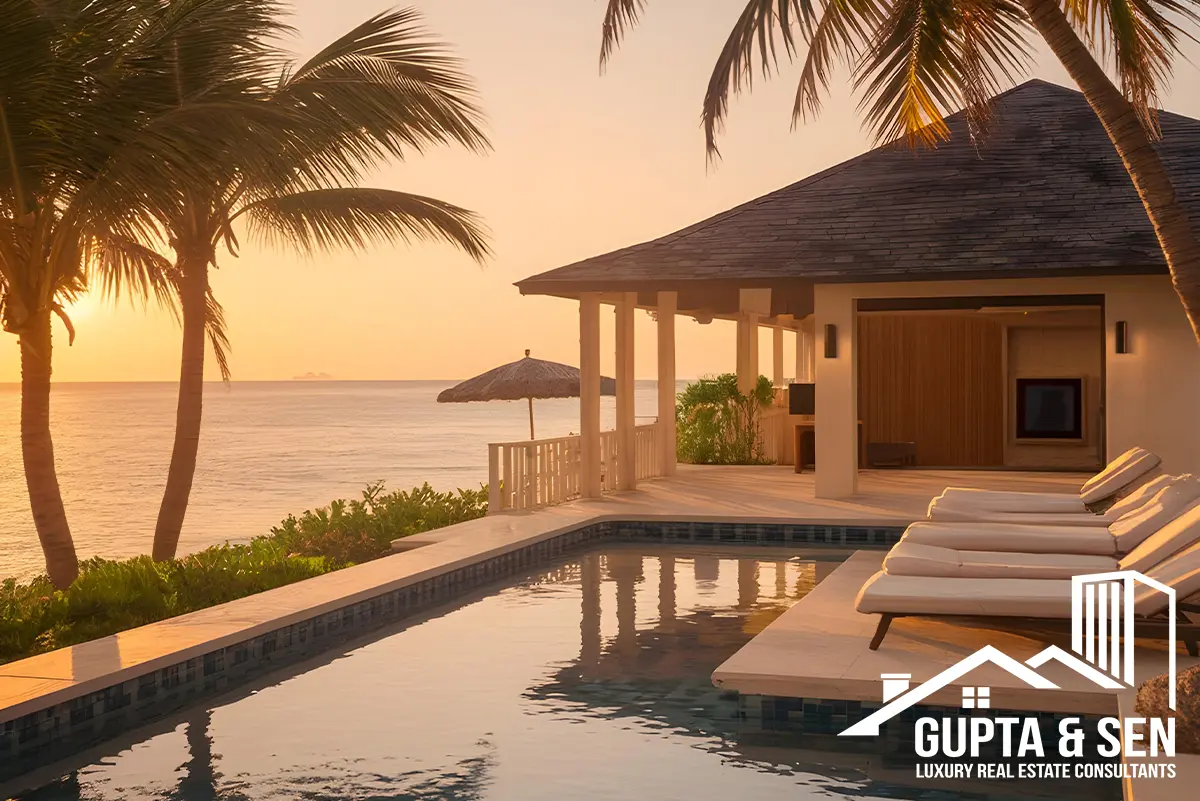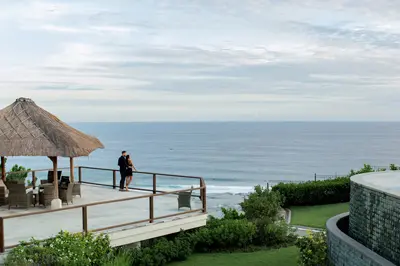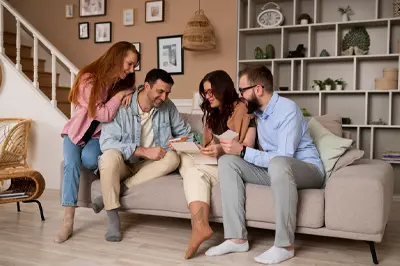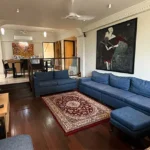Definitive Guide To Buying a Second Home
The idea of owning a second home is no longer reserved for the ultra-rich. Across India, families and professionals are exploring the charm and opportunity of second homes — whether as a weekend retreat, a rental income source, or a post-retirement sanctuary. From the breezy coastal villas of Alibaug to the verdant hideaways of Karjat, second homes are now part of an aspirational lifestyle that balances investment with emotional fulfilment.
But before you take the leap, it’s important to understand that buying a second home requires a clear sense of purpose, planning, and strategy. This informative article breaks down the essential steps you need to follow — with insights from our editorial team, Mumbai’s leading luxury property consultants specializing in second homes across India.
Step 1: Define Why You Want a Second Home
Every great purchase starts with purpose.
Ask yourself — what’s my primary reason for buying a second home?
In India, the motivations generally fall into three broad categories:
1. Investment
For many, a second home is a smart way to diversify their wealth. With land scarcity and urban expansion, areas around Mumbai such as Alibaug, Karjat, Lonavala, and Pawna have shown steady appreciation in property values. A strategically purchased second home can yield handsome capital gains over time, along with seasonal rental income.
At Gupta & Sen, we often advise investors to look for location-driven growth — areas where infrastructure projects such as trans-harbour links, expressways, or airport expansions are likely to boost property values.
2. Vacation and Lifestyle
Others dream of escaping the chaos of the city. A luxury villa near the beach or a hillside home surrounded by forest offers mental rejuvenation, privacy, and space — luxuries urban living often denies.
Projects like those featured in Gupta & Sen’s second home listings attract buyers seeking curated getaways that can also serve as family gathering spaces.
3. Future Retirement
A growing number of Indians are buying their future retirement homes now, taking advantage of lower prices and long-term appreciation. These homes are designed for comfort, accessibility, and serenity — whether overlooking a lake, nestled in green foothills, or near a temple town.
Regardless of your reason, define your main goal clearly. It will shape your financial plan, the type of property you choose, and even your tax strategy.
Step 2: Evaluate If It Makes Financial Sense
Buying a second home isn’t just about the price tag — it’s about the total cost of ownership. Beyond the down payment, you’ll need to factor in:
- Property registration and stamp duty
- Maintenance and society charges
- Furnishing and décor costs
- Utility bills, property tax, and insurance
- Potential renovation or upkeep expenses
Ask yourself if this second home will generate income (via rentals or appreciation) or be an expense for leisure. At Gupta & Sen, we work with clients to build a clear cost-benefit matrix, comparing expected returns with holding costs to ensure financial clarity.
Also, ensure your first home’s loan or obligations are comfortably managed. Banks are more cautious when lending for a second property, and interest rates can be slightly higher.
Step 3: Choose the Right Location
Location is the heartbeat of any successful real estate investment. The wrong location can drain your resources; the right one can multiply your wealth and joy.
When it comes to second homes in India, Gupta & Sen recommends evaluating locations on these criteria:
- Accessibility – How easy is it to reach from your primary residence?
For example, Alibaug has become a prime choice due to new connectivity through the speedboat and Ro Ro Service and the Mumbai Trans Harbour Link (MTHL), reducing travel time dramatically. - Infrastructure Development – Upcoming roads, railways, airports, and hospitality projects can greatly enhance future value.
- Scenic Appeal & Microclimate – Whether you prefer the sea breeze of beaches in Goa or the misty serenity of Kasauli, the environment defines the emotional return on your investment.
- Safety & Community – Gated communities with private security, well-managed maintenance, and good healthcare access are ideal for long-term comfort.
Our most sought-after second home destinations — Alibaug, Lonavala, Igatpuri, Shahpur, Karjat, Kasauli, Ooty, Rishikesh and Goa— are not just scenic but when you apporoach us to buy a second home we will help you buy in projects that have been personally vetted by our team so that your new second home purchase is backed by strong infrastructure and developer credibility.
Step 4: Understand the Legal and Tax Implications
Before you sign the cheque, understand the legal and tax framework of owning a second home in India.
a. Tax on Second Homes
If your second home is not rented out, it is deemed as “self-occupied” for one property and “deemed let-out” for the other — meaning you may be taxed on notional rental income. If rented, the actual rent received is taxable under “Income from House Property,” though you can claim deductions for municipal taxes, standard maintenance (30%), and home loan interest.
b. Capital Gains
When you sell your second home after holding it for more than 24 months, it qualifies as a long-term capital asset, taxed at 20% after indexation. You can reinvest the gains in another property (under Section 54F) to save tax — a strategy that many Gupta & Sen clients employ when upgrading to a larger villa or estate.
c. Registration and Ownership
Always ensure the property has a clear title, necessary approvals, and an occupancy certificate. Working with experienced consultants like Gupta & Sen ensures due diligence and transparency at every step.
Step 5: Plan Your Financing Wisely
A second home demands both short-term liquidity and long-term financial stability.
Your Options Include:
- Home Loan: Banks typically offer up to 75–80% of the property value for second homes, depending on your credit profile.
- Leverage Primary Home Equity: You can borrow against the value of your first home.
- Co-ownership: Pooling resources with family or friends can make high-value properties more accessible.
- Developer Financing: Many luxury second home projects now offer structured payment plans and partnerships with leading financial institutions.
At Gupta & Sen, we connect clients with trusted lending partners who specialize in second-home loans, ensuring competitive rates and smooth documentation.
Step 6: Decide on the Type of Property
Second homes come in all shapes and forms. The right one depends on your budget, purpose, and lifestyle.
- Independent Villas: Ideal for privacy seekers who prefer open land and autonomy. Found abundantly in Lonavala, Alibaug, Karjat, and coastal Maharashtra.
- Farmhouses and Plots: Great for long-term investors who may build later. Offer flexible use for agriculture or leisure.
- Apartments or Condos: Offer convenience, security, and lower maintenance, especially for weekend or seasonal stays.
- Luxury Managed Homes: High-end properties with concierge, housekeeping, and rental management services — perfect for NRIs and busy professionals.
At Gupta & Sen, we curate listings that match your intended use — from cozy hillside cottages to ultra-luxury beach villas — with verified developers and realistic ROI assessments.
Step 7: Explore Alternate Financing and Partnerships
Not everyone needs to buy a second home alone. Shared ownership and private lending can make the dream accessible.
a. Buying with Friends or Family
Joint ownership helps split costs and maintenance, provided there’s a clear co-ownership agreement defining usage, expenses, and exit terms.
b. Private Loans and Partnerships
Instead of borrowing from banks, some buyers opt for private financing within the family to keep interest payments in-house. Gupta & Sen often help clients formalize such agreements with legal experts to ensure clarity and compliance.
c. Fractional Ownership Platforms
A rising trend in India, fractional ownership allows investors to own a share of a luxury villa or vacation home managed by a professional firm. It’s an innovative way to enter the second home market with lower capital outlay.
Step 8: Prepare for Rental and Management
Many second-home owners choose to rent out their properties when not in use — a practical way to offset costs or even generate passive income.
To succeed, you’ll need:
- A professional property management partner such as Stayvista or Airbnb
- Regular upkeep and inspections
- Transparent agreements with tenants or guests
- Proper insurance and security systems
Gupta & Sen collaborates with property management experts to help clients monetize their homes hassle-free, ensuring maintenance, bookings, and compliance are handled efficiently.
Step 9: Protect Your Investment
A second home is both a financial and emotional asset — one that deserves protection.
Checklist for Protection:
- Home Insurance: Covers structural and content damages.
- Title Insurance: Protects against ownership disputes or fraudulent sales.
- Regular Maintenance: Prevents small issues from turning into costly repairs.
- Security Measures: Surveillance, caretakers, or gated community living enhance safety.
Before any purchase, we help you hire a legal professional who will conduct exhaustive due diligence, including title verification, developer background checks, and legal audits to secure your investment.
Step 10: Think Long-Term — Lifestyle and Legacy
A second home is more than a property; it’s an extension of your identity and a legacy for the next generation. It can serve as:
- A rental income generator today
- A holiday retreat for family and friends
- A retirement haven tomorrow
Clients of Gupta & Sen often share how their second homes have become multigenerational treasures — hosting memories as much as they host guests. That emotional return often outweighs any financial metric.
Final Thoughts
Buying a second home in India is a journey — one that blends emotion, aspiration, and investment. The key is balance: knowing why you’re buying, where you’re buying, and how to make it work for your life and finances.
Whether you’re looking for a weekend escape near Mumbai, a rental investment in a growing destination, or a serene retirement villa, Gupta & Sen has the expertise, listings, and market insight to guide you.
Explore our handpicked second home collections here:
About Gupta & Sen
At Gupta & Sen, we specialize in high-value real estate across Mumbai and India — from ultra-luxury apartments to tranquil second homes. With years of experience, a reputation for transparency, and a curated portfolio of the finest properties, we help discerning buyers make informed, inspired decisions.
If you’re ready to take your next step toward owning a second home in India, get in touch with our team today.
Do not miss a single article!
Submit your email id to get new articles directly into your email inbox!
- Why Buyers Should Work with Agents - January 17, 2026
- Definitive Guide To Buying a Second Home - October 9, 2025
- Top Ten Real Estate Law Firms in Mumbai - August 3, 2021

















